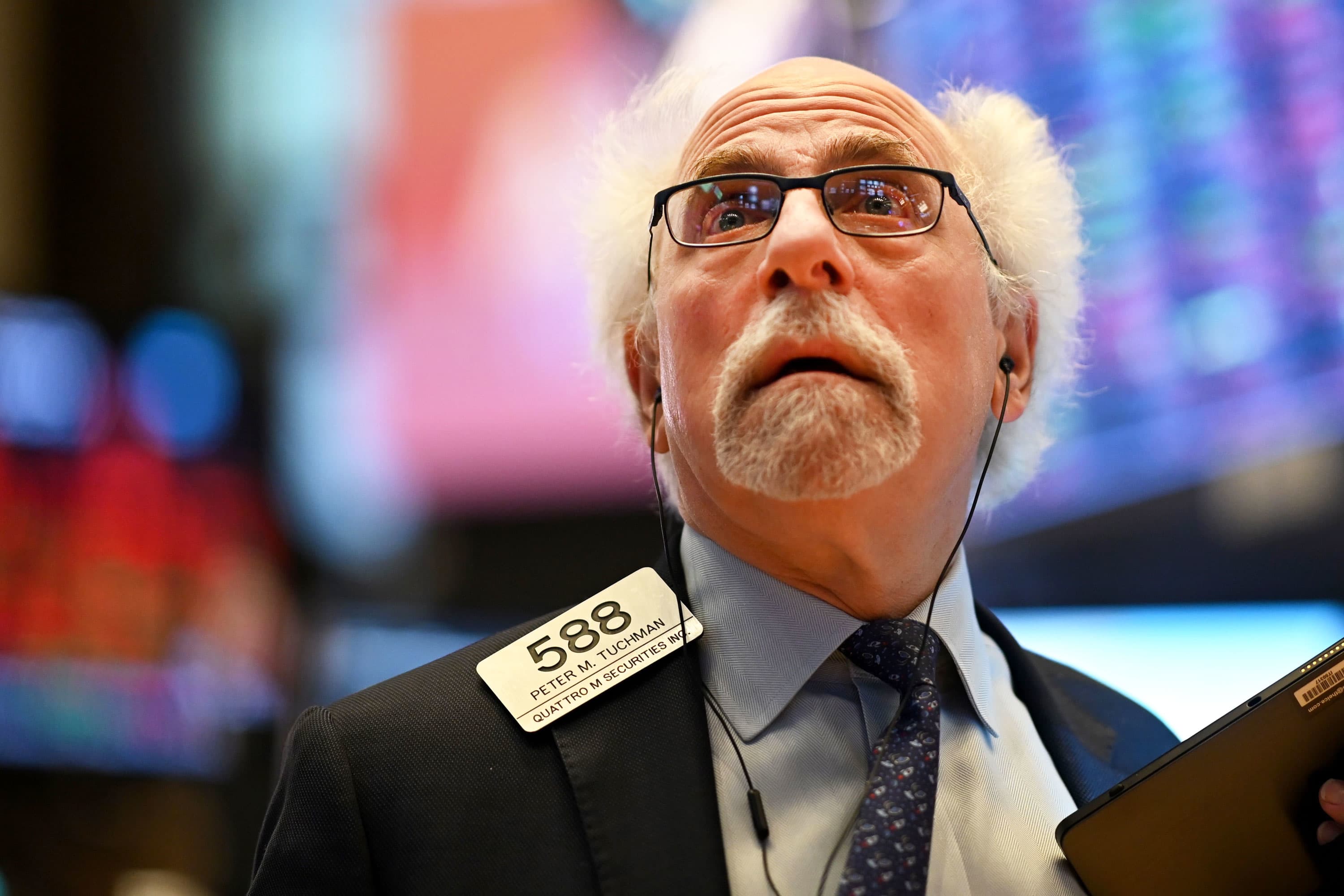The end to the record-long bull market is now a reality. However, entering a bear market doesn’t always mean a recession is upon us, history shows.
This week, the S&P 500 and the Dow Jones Industrial Average entered bear markets, ending their historic 11-year bull runs. A bear market marks a 20% decline from all-time highs. As a forward-looking mechanism, the stock market usually sends warnings about the economy before shrinking growth shows up in the data.
Still, there have been a couple of instances where recessions didn’t accompany previous bear markets, according to data from LPL Financial going back to the S&P 500’s inception. In 1987, the S&P 500 tanked 22% in the infamous Black Monday crash, suffering its largest single-day percentage loss ever. That bear market lasted for only four months and the U.S. economy avoided a downturn.
“Now the good news is not all bear markets occur in recessions; in fact, when the economy has avoided recession, stocks have bottomed right around down 20% over the past several bear markets,” said Ryan Detrick, LPL Financial’s senior market strategist.
Recessions also didn’t occur amid the bear markets in 1961, 1966 and 1947. A fall in GDP for two consecutive quarters is generally considered a recession. Officially, the National Bureau of Economic Research declares a recession if there’s a significant decline in economic activity, lasting more than a few months, signaled by lower readings in real GDP, real income, employment, industrial production, and wholesale-retail sales.
Still 70% chance
To be sure, the majority of the bear markets in recent history — above 70% — were accompanied by a recession, according to LPL data.
Fears of a recession have risen significantly on Wall Street as the coronavirus outbreak worsened drastically in the U.S. President Donald Trump said the U.S. will suspend all travel from Europe for 30 days and declared a national emergency on Friday. Major events have been called off for precaution, including the National Basketball Association, which has suspended its season.
The S&P 500 plummeted 9.5% on Thursday in its worst day since 1987’s “Black Monday,” while the Dow suffered its worst point drop ever and the biggest percentage decline since 1987. Investors signaled the government’s fiscal plans and the Federal Reserve’s ramped-up funding actions wouldn’t be sufficient to offset the economic impact from the outbreak.
‘A novel-global recession’
While some economists haven’t caught up with the fast-changing situation with the outbreak, many have slashed their forecasts for GDP in the near term and are already calling for a recession.
JPMorgan economists see a synchronized slowdown in the global economy for more than one quarter, followed by a recovery in mid-year.
“COVID-19 is expected to roll through the global economy over February, March, and April, generating GDP contractions in most countries for at least one of the two quarters it straddles,” Bruce Kasman, J.P. Morgan’s chief economist, said in a note. “If our current forecast is realized it seems appropriate to characterize it as a novel-global recession.”
Bank of America on Tuesday cut its view of global growth due to the impact of coronavirus. For the U.S., the firm now expects GDP to grow this year by just 1.2%, down from 1.6%. That is based on close to zero growth in the second and third quarters.
“The economy will flirt with recession in the coming months with negative GDP in 2Q, we believe,” Michelle Meyer, Bank of America’s chief U.S. economist, said in a note. “Growth is expected to remain soft in 3Q with recovery starting thereafter. Get ready for disinflation– headline slowing notably and core remaining below target. An aggressive policy response is needed.”
Ed Hyman, a widely followed economist on Wall Street, has called for a “virus recession” in the U.S. and slashed his U.S. GDP forecast to zero growth for the next two quarters.
— CNBC’s Nate Rattner and Michael Bloom contributed to this report.
Subscribe to CNBC PRO for exclusive insights and analysis, and live business day programming from around the world.
